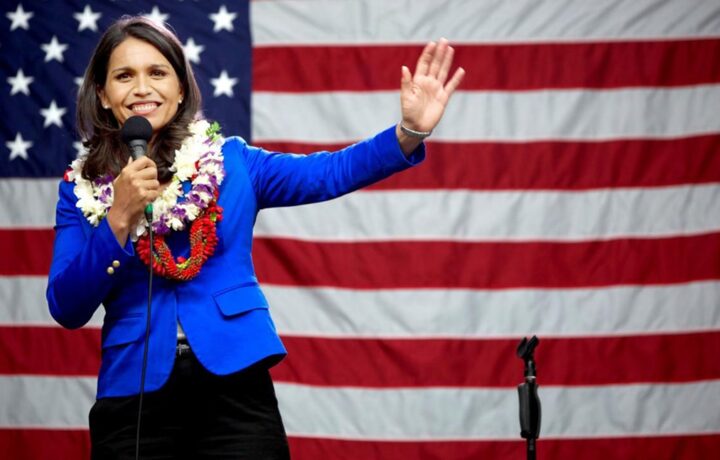The intersection of marijuana use and security clearances is nothing new. For decades, applicants with even a hint of past drug use faced significant clearance hurdles. Fast forward to today, and while the clearance process has adapted to shifting public policies and attitudes, the federal government still holds firm on one thing—ongoing marijuana use is a problem.
That’s a line Rep. Tulsi Gabbard (D/R-HI), President Donald Trump’s nominee for Director of National Intelligence (DNI), appears ready to maintain. In her written responses to the Senate Intelligence Committee’s Questions for the Record (QFRs), Gabbard took a measured approach—acknowledging that past marijuana use shouldn’t be a dealbreaker for security clearance eligibility but emphasizing that continued use remains a concern.
A Shifting Landscape with a Federal Roadblock
Security clearance adjudications have long considered illegal drug use a red flag. In the early 2000s, a single instance of marijuana use—even in college—could be enough to derail a promising career in intelligence or defense. But as states began legalizing marijuana for medical and recreational use, pressure mounted to modernize how past drug use was evaluated in the clearance process.
The Office of the Director of National Intelligence (ODNI) clarified its position in 2021, acknowledging that prior marijuana use alone is not disqualifying. However, current use remains a concern because marijuana is still illegal at the federal level. Even if you legally light up in California or Colorado, federal law governs the security clearance process.
Gabbard’s responses seem to align with this position. She agrees that past use shouldn’t automatically disqualify a candidate, as long as it doesn’t indicate broader concerns about judgment or reliability. But ongoing use? That’s a different story.
The Whole-Person Concept Still Rules
Gabbard’s carefully worded responses reflect an understanding of the “whole-person concept”—a critical component of security clearance determinations. Rather than taking a one-size-fits-all approach, adjudicators consider an applicant’s entire profile—financial issues, foreign influence, criminal history, and of course, drug use.
In her QFR responses, Gabbard reiterated that marijuana use must be evaluated within the context of an individual’s overall judgment, legal obligations, and ability to safeguard classified information. That aligns with ODNI’s guidance and the way clearance determinations are typically made: case by case.
But while Gabbard’s statements largely stick to established DNI policy, they also contrast sharply with her past political positions. As a congresswoman, she championed marijuana legalization and drug decriminalization. In 2019, she even suggested that the U.S. should decriminalize all drugs for personal use. That makes her more cautious tone in the QFRs a bit surprising.
Is This the End of Clearance Denials for Marijuana Use? Not Quite.
Marijuana policy has evolved, but security clearance denials due to cannabis are far from over. In 2023, Sen. Ron Wyden (D-OR) pushed legislation that would prohibit denying clearances based solely on past marijuana use. The proposal made it into an intelligence oversight bill but ultimately didn’t make it into law.
Meanwhile, the Biden administration’s move to reclassify marijuana as a Schedule III drug could have implications for the clearance process. But rescheduling isn’t the same as legalization, and clearance holders should still be wary of assuming marijuana is a risk-free choice. It’s unclear if the Trump Administration will move forward with any plans the Biden Administration had for moving marijuana to a Schedule III drug.
If confirmed as DNI, Gabbard has promised to ensure security clearance decisions are “fair, consistent, and aligned with national security needs.” But what that looks like in practice remains to be seen. Will her tenure lean toward reform, or will federal law—and its firm stance on marijuana—continue to dictate the rules?
For now, one thing remains clear: The intelligence community still expects clearance holders to follow federal law, and that means no toking up, no matter how many states legalize it.




